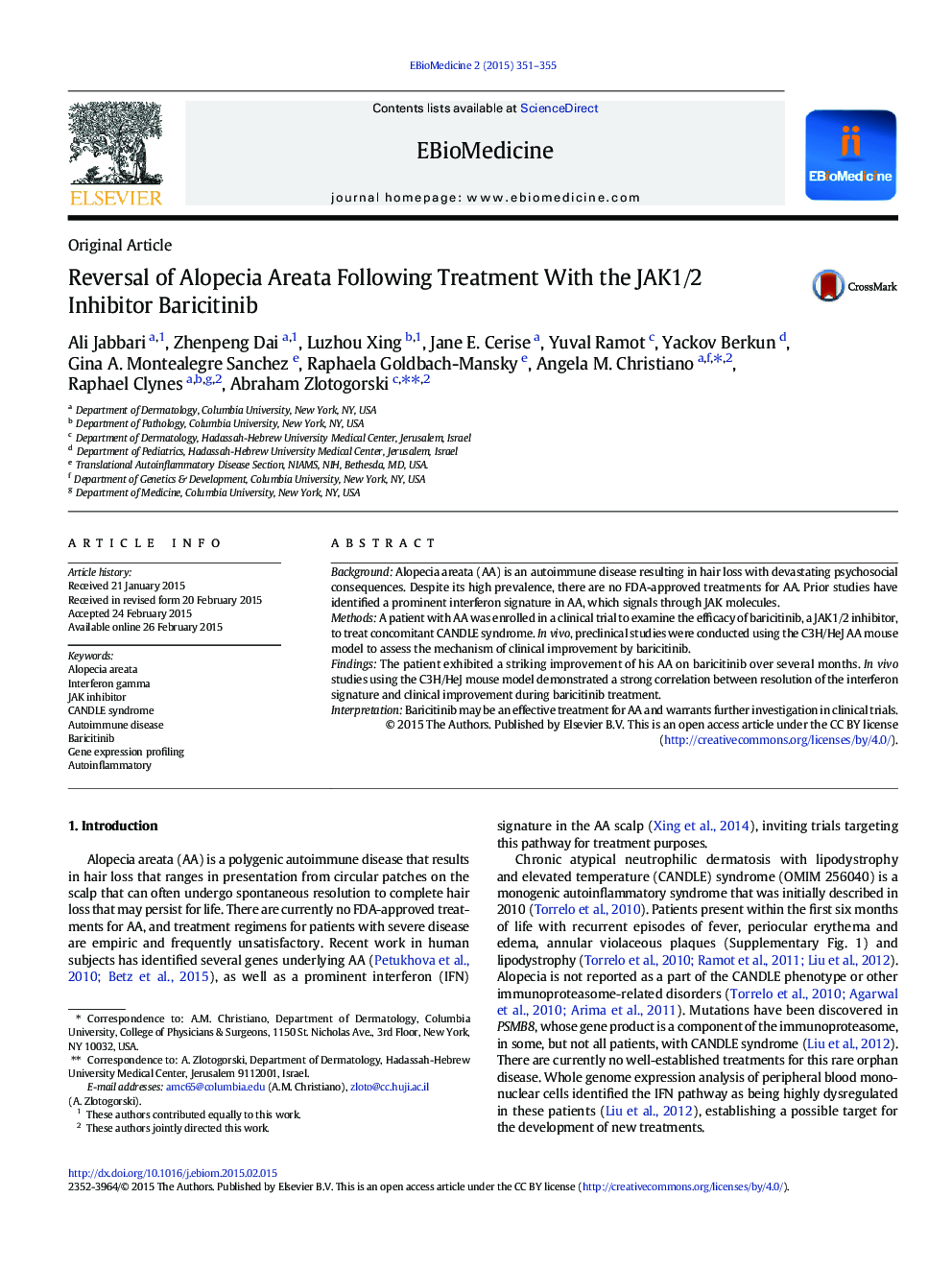| Article ID | Journal | Published Year | Pages | File Type |
|---|---|---|---|---|
| 2121340 | EBioMedicine | 2015 | 5 Pages |
BackgroundAlopecia areata (AA) is an autoimmune disease resulting in hair loss with devastating psychosocial consequences. Despite its high prevalence, there are no FDA-approved treatments for AA. Prior studies have identified a prominent interferon signature in AA, which signals through JAK molecules.MethodsA patient with AA was enrolled in a clinical trial to examine the efficacy of baricitinib, a JAK1/2 inhibitor, to treat concomitant CANDLE syndrome. In vivo, preclinical studies were conducted using the C3H/HeJ AA mouse model to assess the mechanism of clinical improvement by baricitinib.FindingsThe patient exhibited a striking improvement of his AA on baricitinib over several months. In vivo studies using the C3H/HeJ mouse model demonstrated a strong correlation between resolution of the interferon signature and clinical improvement during baricitinib treatment.InterpretationBaricitinib may be an effective treatment for AA and warrants further investigation in clinical trials.
